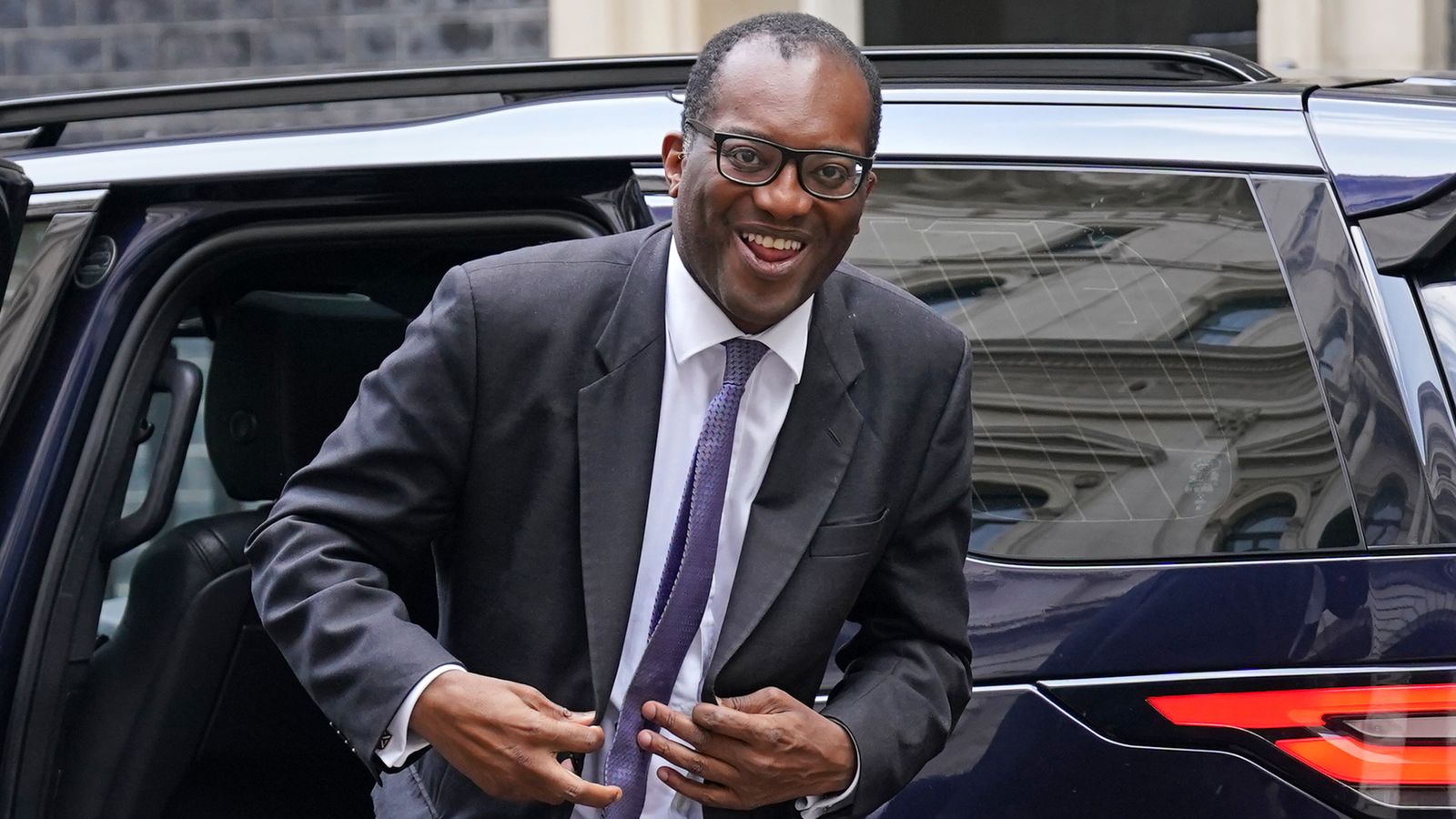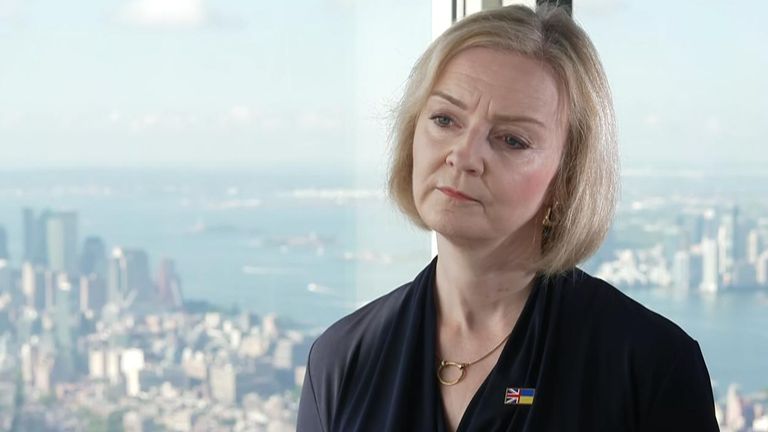Kwasi Kwarteng will promise a “new era for Britain” with a major package of measures to “turn the vicious cycle of stagnation into a virtuous cycle of growth”.
The chancellor is set to announce tens of billions of pounds both of increased spending and of tax cuts when he delivers his mini-budget at around 9.30am on Friday.
The statement is expected to include details of how the government will fund the energy price cap for households and businesses, and put into practice many of Prime Minister Liz Truss‘s tax-slashing promises.
The government is dubbing it a “growth plan” at a time when the UK faces a cost of living crisis, soaring inflation and climbing interest rates.
Speaking about his priorities in a speech to the House of Commons, the chancellor is expected to say: “Growth is not as high as it needs to be, which has made it harder to pay for public services, requiring taxes to rise.
“This cycle of stagnation has led to the tax burden being forecast to reach the highest levels since the late 1940s.
“We are determined to break that cycle. We need a new approach for a new era focused on growth.
“The work of delivery begins today.”
The chancellor will say that focusing on growth will deliver higher wages and raise revenue to fund public services, while allowing Britain to compete with other leading economies.
“That is how we will turn the vicious cycle of stagnation into a virtuous cycle of growth,” Mr Kwarteng is expected to say, adding that Ms Truss’s administration will be “bold and unashamed in pursuing growth – even where that means taking difficult decisions”.
What could be announced?
The chancellor already confirmed ahead of his mini-budget that the National Insurance hike introduced by Boris Johnson’s government to pay for social care and tackling the NHS backlog will be reversed on 6 November.
He is also set to axe the planned increase in corporation tax from 19% to 25%, and scrap the caps on bankers’ bonuses as part of wider City deregulation.
It has also been reported that he will cut stamp duty in a further attempt to drive growth.
Proposals to fast-track a scheduled 1p cut in income tax and to slash VAT from 20% to 15% across the board are reportedly also being considered.
Under his “growth plan”, the chancellor is also expected to announce the creation of new investment zones in dozens of areas across England, where businesses will be offered targeted and time-limited tax cuts to boost productivity and create jobs.
The chancellor is expected to say that the government is in discussion with 38 local and mayoral combined authority areas in England, including West Midlands, Tees Valley, Somerset and Hull.
The investment zone areas will also benefit from a relaxation in planning laws so more land can be released for housing and commercial development.
The chancellor also wants new measures to speed up about 100 major infrastructure projects, including new roads, railways and energy projects, by watering down environmental assessments and other regulations.
He is expected to say: “The time it takes to get consent for nationally significant projects is getting slower, not quicker, while our international competitors forge ahead.
“We have to end this. To support growth right across the country, we need to go further, with targeted action in local areas.”
Read more:
Five things to watch out for in Friday’s mini-budget
Truss admits her tax cuts will disproportionately benefit the rich
Who is Kwasi Kwarteng?
Unlike a full budget, which would typically be held in November, Mr Kwarteng will only put forward a handful of major legislative proposals.
The chancellor has faced criticism for refusing to publish a forecast of the UK’s economic outlook alongside his fiscal statement.
Instead, he has said he will provide a timeline for an independent economic forecast from the Office for Budget Responsibility (OBR) during his mini-budget.
‘From levelling up to trickle down’
Some economists have warned about the sharp rise in government borrowing to fund the plans.
Estimates of the cost of the energy package are as high as £150bn.
The Institute for Fiscal Studies said the strategy to drive growth was “a gamble at best” and that ministers risked putting the public finances on an “unsustainable path”.
Labour also warned of increased risk and said the plans followed 12 years of “low growth and plummeting living standards”.
Pat McFadden, shadow chief secretary to the Treasury, said: “The Conservatives don’t have a new plan for economic growth. They have simply moved from levelling up to trickle down and that has not worked in the past.
“Their choice to fund all of this through borrowing and not attempt to fund even a proportion of it through a windfall tax on the energy companies making the most from the current crisis increases risk and leaves British taxpayers paying more for longer.
“They are doing all of this at a time when inflation is high and interest and mortgage rates are already on the rise.”

